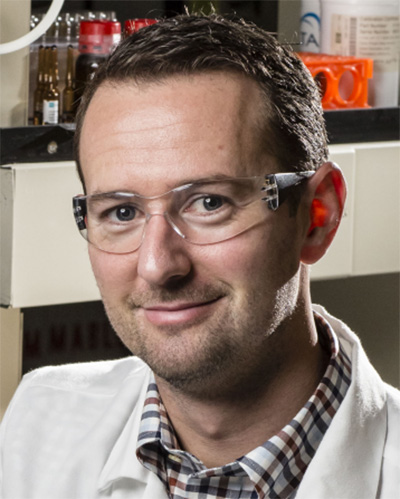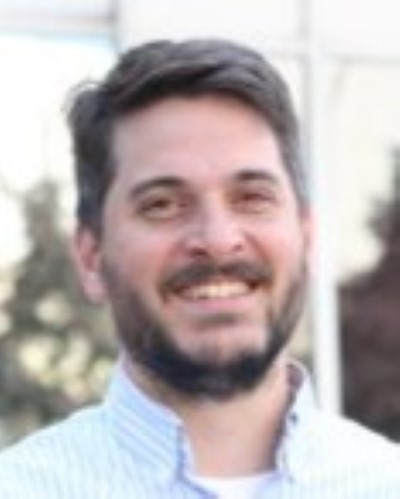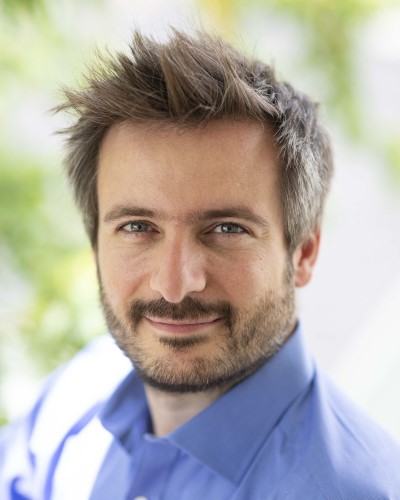Participants have the option of taking a two-day short-course bundle at discounted costs.
In addition to in-person participations of the short courses, we are also offering online participations.
The online participants will access live streaming of the real-time lectures synchronously.
Short Course Registration Info
Short course registration includes a complete set of course notes. Payment can be made on line with MasterCard, Visa,
Discover, or American Express. Lunch and snacks for the breaks will be provided each day for in-person participants.
One-Day Short Courses
- LAOS Rheology: a start-to-finish guide (Sat Oct 12)
- Automated Rheology and Application to Multi-methods Measurements (Sun Oct 13)
| Registration Fees for a One-Day Short Course |
Through 9/13/2024 |
After 9/13/2024*** |
| In Person |
Online |
In Person |
Online |
| Member* |
$600 |
$400 |
$700 |
$500 |
| Non-Member** (includes membership for 2025) |
$750 |
$520 |
$850 |
$620 |
| Student Member* |
$300 |
$200 |
$400 |
$300 |
| Student Non-Member** (includes membership for 2025) |
$350 |
$240 |
$450 |
$340 |
| Retired Member* |
$300 |
$200 |
$400 |
$300 |
Two-Day Short Course Bundles
- LAOS Rheology: a start-to-finish guide + Automated Rheology and Application to Multi-methods Measurements (Sat Oct 12 – Sun Oct 13)
| Registration Fees for a Two-Day Short Course Bundle |
Through 9/13/2024 |
After 9/13/2024*** |
| In Person |
Online |
In Person |
Online |
| Member* |
$900 |
$600 |
$1,000 |
$700 |
| Non-Member** (includes membership for 2025) |
$1,050 |
$720 |
$1,150 |
$820 |
| Student Member* |
$450 |
$300 |
$550 |
$400 |
| Student Non-Member** (includes membership for 2025) |
$500 |
$340 |
$600 |
$440 |
| Retired Member* |
$450 |
$300 |
$550 |
$400 |
* Member rates are available only to registrants who are members in good standing as of June 30, 2024.
Member rates are also available to non-members who are registered to attend the 95th Annual Meeting in the same registration order.
** Non-members who are registered to attend the 95th Annual Meeting may register for the short course at the member rates in the same registration order.
*** Subject to availability. Cutoff date is Friday 4 October 2024.
Cancellations for the short course received by email (c/o The Local Arrangements Chair, Roger Bonnecaze)
by Friday 13 September 2024
will be refunded minus a $50 administrative charge. No refunds will be granted after that date.
LAOS Rheology: a start-to-finish guide
Simon Rogers, Chemical and Biomolecular Engineering, University of Illinois at Urbana-Champaign
Course Description
Large amplitude oscillatory shearing (LAOS) is a popular method of probing the transient nonlinear rheology of a wide range of soft materials. The ability to tune
the strength of the flow with the amplitude and the timescale with the frequency allows LAOS to stand in for a variety of real-world applications. While it’s an
easy test to perform, how to understand the results obtained from such tests has been the subject of study for decades. This course will provide historical context
of our understanding of LAOS as well as teach participants the fundamental rheological concepts behind the protocol, the dimensionless groups that are often used to
describe LAOS, how to perform experiments in ways that allow maximum extraction of information, and how to interpret results. A particular emphasis of the course is
to show how connections between LAOS and responses to other protocols. Attendees will benefit from pre-existing familiarity with the concepts of stress, viscoelasticity,
non-Newtonian rheology, and rheometry. The course will include experimental demonstrations of LAOS measurements of materials that yield and how the obtained data can be
analyzed and used for constitutive model determination.
Course Outline
-
An Introduction to LAOS and Historical Development (1.0 hr)
-
Why use oscillatory shear? How large is large? What is LAOS used for? How has our understanding developed?
-
Fundamental Rheological Concepts in LAOS (1.0 hr)
-
Small amplitude material functions and extensions to large amplitudes. Dimensionless groups. Time and deformation domain analyses.
-
Beyond Material Functions (1.0 hr)
-
Connections to other flow types and generation of constitutive relations.
-
Demo (2.0 hr)
-
Making good LAOS measurements and beyond – what more information can be obtained?
-
Discussion of Student Questions (30 min)
Instructor

Simon Rogers
University of Illinois at Urbana-Champaign
Simon Rogers
is Associate Professor of Chemical Engineering at the University of Illinois at Urbana-Champaign. Before joining the faculty at UIUC, he received his
B.Sc., B.Sc. (Hons), and PhD in Physics from Victoria University of Wellington, in New Zealand. He performed postdoctoral research at FORTH in Crete,
Forschungzentrum Juelich in Germany, and at the University of Delaware. Prof. Rogers’ research focuses on understanding the fundamental physics behind
time-dependent phenomena exhibited by soft condensed matter systems for biomedical, energy, and environmental applications. Toward this aim, a particular
focus of the Rogers lab is the integration of rheological, structural and flow measurements to monitor material processing in situ. Rogers’ research has
been recognized with early career awards from the National Science Foundation, American Chemical Society, and The Society of Rheology.
Automated Rheology and Application to Multi-methods Measurements
Jeffrey Richards, Chemical and Biological Engineering, Northwestern University
Thibaut Divoux, CNRS / ENS de Lyon
Course Description
Recently deployed open software concepts in commercial rheometers have made possible automation of rheological experiments without interaction with the graphical
user interface. In this short course, we will illustrate how Python can be leveraged to control a rheometer and how data streams from the rheometer can be utilized
to perform multi-method experiments, synchronizing the activities of the rheometer and other test equipment. This short course has broad applicability to a variety
of in situ rheometric techniques that couple rheology with other measurement tools to probe the properties of samples under test. Attendees will benefit from
pre-existing familiarity with programming concepts such as instrument control and data acquisition. For that audience, this course will serve as a first introduction
to interacting with an Application Programming Interface. A particular emphasis of the course is the illustration of multi-methods measurements using rheo-electric
measurements, where impedance measurements are made on a sample at the same time as rheology is measured. Our focus will seek to understand how the formulation and
processing of complex fluids whose electrical properties change dramatically under different flow conditions (e.g., lithium-ion battery slurries, carbon black gels,
graphene dispersions, etc.) can be informed by these measurements. This demonstration will show how impedance measurements on slurries subjected to shear in a
rheometer can be used to overcome the challenges related to characterizing the rheology of these slurries. A special emphasis will be placed on the impact that
flow history has on the electric impedance, which is a highly sensitive probe of the slurry microstructure and its response to processing. Impedance correction
protocols will be reviewed, and standard rheological protocols for slurry characterization discussed. Theories and scaling laws will be reviewed connecting elasticity
to electrical behavior.
Course Outline
-
An Introduction to Soft Solids and their Fluid-Solid Transitions (1.0 hr)
-
Understanding Soft Material building blocks and how their properties emerge from their microscopic interactions.
-
Automation of Rheometers and Multi-Modal Measurements (1.0 hr)
-
Programming in Python, Instrument Control and Data Acquisition.
-
Introduction to Electrical Spectroscopy and Rheo-electric Measurements (1.0 hr)
-
Basics of data correct, impedance spectroscopy, and categories of materials that benefit from rheo-electric measurements.
-
Demo (2.0 hr)
-
Rheometer basics - Rheological tooling, what, when, where and why? - Measurement strategies - Problems & mistakes!
-
Discussion of Student Questions (30 min)
Instructors

Jeffrey Richards
Northwestern University
Dr. Jeffrey Richards
received his PhD in August 2014 from the Department of Chemical Engineering at the University of Washington. After graduating from UW, he performed his postdoctoral
work at the University of Delaware and the NIST Center for Neutron Research in Gaithersburg, MD as a National Research Council Fellow. Dr. Richards joined the
Department of Chemical and Biological Engineering at Northwestern in 2018 where his current research focuses on engineering the properties of soft materials for
electrochemical energy storage applications. During his time at Northwestern, Dr. Richards has been awarded the National Science Foundation’s CAREER award and
the American Chemical Society’s Distinguished New Investigator Award.

Thibaut Divoux
CNRS / ENS de Lyon
Thibaut Divoux,
a CNRS research scientist since 2012, specializes in soft matter physics and experimental rheology. His research has generated original insights on amorphous soft
materials both from a fundamental perspective, and in various industrial sectors including pharmaceuticals (e.g., agarose gels), food (e.g., yoghurts), construction
(e.g., tile adhesive), and energy storage (e.g., conductive suspensions of carbon black or graphite oxide). His expertise encompasses complex fluids, dense suspensions,
gels and soft composites that he investigates by rheometry coupled with local techniques such as velocimetry, dielectric measurements, and IR spectroscopy. Additionally,
he performs local mechanical tests using atomic force microscopy, micro- and nano-indentation to understand how local mechanical properties translate in the macroscopic
response of these viscoelastic materials. He was awarded the 2018 Metzner Prize of the Society of Rheology for his work on the shear-induced yielding transition in Soft
Glassy Materials. Since 2023, he is serving as co-director of the GDR SoPhy, aiming to unite national and international research efforts in physics of soft precursors
for hard materials with over 300 members spread in 60 laboratories.